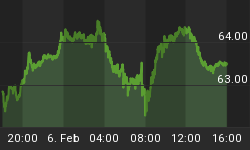Where we are today is the culmination of decades of irresponsible financial/fiscal policies and a complete abdication of fundamental economics. But that should not be a surprise. The self-proclaimed purpose of the Federal Reserve Bank is to manage the economic cycles; an impossibly presumptive task and a violation of fundamental economic theory.
In addition, the Federal Reserve Bank is also charged with ensuring the financial operation of the US Government. Or, in other words, maintaining their (the US Government's) ability to borrow money by issuing more and more debt in the form of Treasury securities. In my opinion, this is the sole and overriding purpose behind the existence of the Federal Reserve. And it drives every decision they make. It is not about the economic effects of their policies on US citizens (individually or collectively). It is ALL ABOUT KEEPING THE US GOVERNMENT SOLVENT. The US Government is not solvent, of course, but maintaining and reinforcing the confidence in their financial viability is absolutely essential. And nothing else takes precedence.
In the late 1970s the effects of government inflation threatened to cripple the US dollar and bring the US economy to its knees. US Treasury Bonds were losing value faster than most stocks, which were also declining at precipitous rates. Actions taken at that time averted disaster - temporarily. We have had periods of relative stability since, as well as more volatility and financial crises. The cycle continues. And things will get worse.
The US dollar is in a state of perpetual decline (by intention) which will ultimately end in complete repudiation. Whether or not the Federal Reserve raises interest rates is not the real issue. They will do - or not do - whatever they think will keep the charade going for a while longer. But the point of no return has been passed. We may well see more periods of relative financial and economic stability. However, regardless of whether or not we do, we will continue to see the US dollar decline in value/purchasing power and we will be subjected to more erosion of our economic freedom by virtue of more regulations and restrictions.
The US Federal Reserve Bank does not control interest rates. They definitely try to influence the direction and level of nominal interest rates by their actions and verbiage regarding the Fed Funds rate (the rate that member banks of the Federal Reserve System charge each other to borrow funds on a overnight basis) and the Discount rate (the rate that the Federal Reserve charges member banks to borrow funds directly from the Federal Reserve). By virtue of their efforts they hope to encourage economic activity that meets their objective of "managing the economic cycles".
Interest rates are determined in the market place. Investors buy and sell bonds continually, all over the world. The transaction price for a bond is determined by an agreed upon yield (interest rate) between the buyer and the seller. If investors are suspicious about the credit worthiness of the bond issuer, or are concerned about effects of higher inflation, then they tend to want a higher yield/return for tying up their money for a longer period. Hence, bond prices would decline until interest rates reach a higher level that is acceptable to both buyers and sellers.
So why has the bond market responded so willingly to the efforts of the US Federal Reserve Bank? Why have we not seen a similar response from the bond market such as that cited above regarding the 1970s? There are a couple of reasons. For one thing, the Federal Reserve Bank has purchased a lot of debt since the crisis of 2008. They have actively acquired various debt securities and their purchases have helped stem the aggressive selling of various bonds. Also, it is quite possible that bond holders do not see as much risk involved (especially interest rate risk on a projected basis) and are more patient. In addition, foreign governments are the largest holders of US Treasury debt. Hugely so. Trying to sell seemingly small amounts of their own holdings would still be large enough amounts to be disruptive to daily trading and would likely feed any weakness in the market causing further erosion of their own remaining holdings. And this is in light of the fact that the US Treasury Bond Market is the largest financial market in the world. Yes, bigger than the stock market.
Unfortunately, the Federal Reserve's efforts have brought us to a point which is not very 'manageable'. If interest rates rise from here, it will likely usher in a period of withdrawal - financially speaking. We might see a huge implosion of the debt pyramid accompanied by a collapse in the nominal US dollar price of all assets (stocks, bonds, real estate, commodities, etc.).
If rates continue near zero, or decline (negative interest rates), how low can they possibly go? And maintaining interest rates at these artificially low levels will eventually result in rejection and repudiation of the US dollar.
The dilemma is the result of decades of Federal Reserve activity in the market place. Now, people expect the Federal Reserve to solve a problem which they - the Federal Reserve - created. Good luck!















